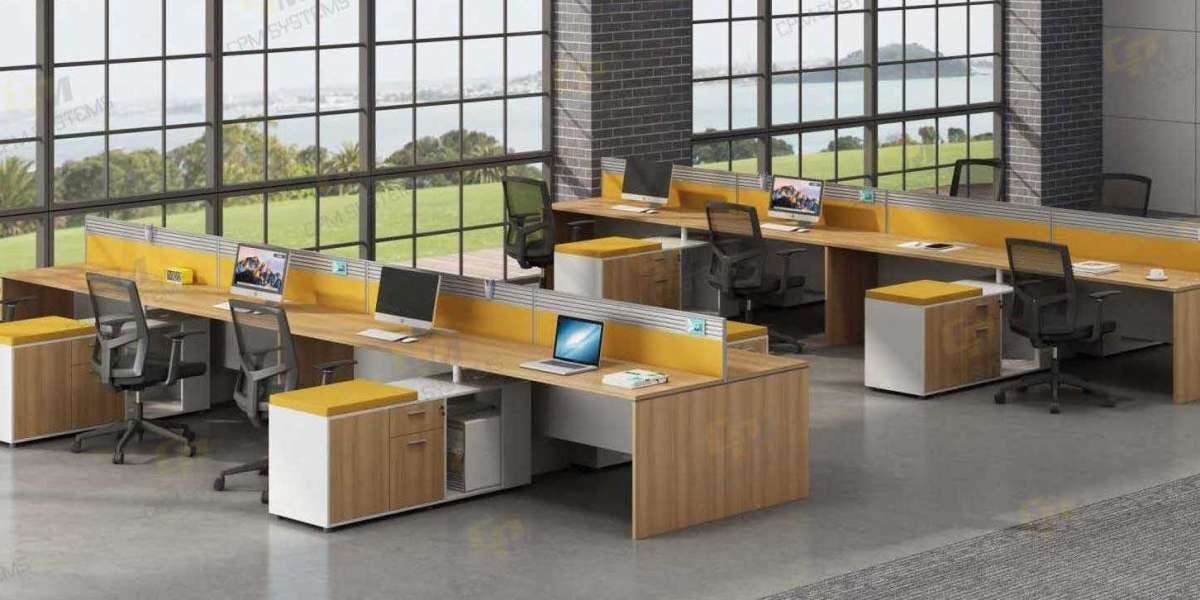In today’s dynamic work environment, modular office furniture has emerged as a game-changer. Gone are the days when traditional office layouts with fixed furniture ruled the workplace. As businesses evolve, so do their needs, and modular office furniture has become the perfect solution for adapting to these changes.
The Rise of Flexibility in Office Design
The concept of modular office furniture gained momentum with the growing demand for flexibility in workplace design. Modern offices require layouts that can adapt to various functions, team sizes, and collaborative needs. Modular furniture, with its customizable and reconfigurable nature, meets this demand perfectly. From adjustable desks to movable partitions, these solutions offer endless possibilities for creating a workspace that evolves with your business.
Integration of Aesthetics and Functionality
Early office furniture focused primarily on utility, often neglecting aesthetics. Modular office furniture bridges this gap by combining functionality with sleek, modern designs. Available in various styles, materials, and finishes, these pieces contribute to a professional and inviting work environment. Whether you’re aiming for a minimalist look or a vibrant workspace, modular furniture can be tailored to match your brand identity and office culture.
Supporting Collaboration and Productivity
The evolution of work culture has shifted toward collaboration and teamwork. Modular office furniture facilitates this shift by enabling open and adaptable layouts. Movable desks and chairs, for instance, allow employees to create collaborative spaces on the fly, enhancing communication and teamwork. Additionally, ergonomic designs ensure that employees remain comfortable, boosting productivity and reducing workplace fatigue.
Catering to Hybrid Work Models
The rise of hybrid work models has further accelerated the adoption of modular office furniture. As employees alternate between remote and in-office work, businesses need spaces that accommodate fluctuating occupancy levels. Modular solutions like foldable desks, stackable chairs, and multi-purpose furniture make it easy to reconfigure spaces, ensuring maximum efficiency and utility.
Eco-Friendly and Cost-Effective Solutions
Sustainability is a growing concern for businesses, and modular office furniture offers a greener alternative. Many manufacturers now use eco-friendly materials, ensuring minimal environmental impact. Additionally, modular designs reduce waste by allowing businesses to repurpose and reconfigure furniture instead of discarding it. This longevity and adaptability also make modular furniture a cost-effective investment for businesses of all sizes.
Future Trends in Modular Office Furniture
As technology advances,Modular Office Furniture Manufacturers continues to evolve. Smart furniture equipped with built-in charging ports, cable management systems, and IoT connectivity is becoming increasingly popular. These innovations not only enhance the functionality of modular furniture but also align with the needs of a tech-savvy workforce.
The evolution of modular office furniture reflects the changing dynamics of modern workplaces. Its ability to adapt, innovate, and blend aesthetics with functionality makes it an essential component of any forward-thinking office. Whether you’re redesigning your workspace or planning for future growth, modular office furniture is the key to creating an environment that inspires productivity, collaboration, and innovation.








